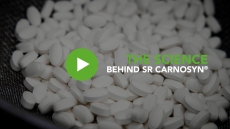FDA adds isomaltulose to tooth decay benefitting claim
of "non-cariogenic carbohydrate sweeteners" that can claim
non-promotion of dental carries.
Its adoption of a final rule validates an earlier interim amendment that took account of a 2006 Cargill petition to have isomaltulose included within the claim's remit which includes other sweeteners such as sucralose and D-tagatose. Isomaltulose is marketed by companies such as Cargill and Beneo-Palatinat. The ruling The ruling is valid with immediate effect. "FDA is taking this action to complete the rulemaking initiated with the interim final rule," it stated in its rulemaking notification sheet, the Federal Register, on May 27. An FDA-approved dental carries health claim was first approved in 1996 but it came with strict usage parameters. It can only be employed on select products whose overall sweetener quantity is low such as gum. Such products can bear claims such as "Does not promote tooth decay" or "May reduce the risk of tooth decay". Larger items must come with a disclaimer such as: "Frequent eating of foods high in sugars and starches as between-meal snacks can promote tooth decay." The claim goes even further by stating such products must be totally sugar-free and not lower plaque pH below 5.7 for up to 30 minutes after consumption. Sweet result Cargill could not be contacted by the time of publication, but at the time the ruling was amended last year to include isomaltulose, its global product manager Anne Mollerus said: "We are pleased that the dental claim can be added to its attributes." In its 2007 amendment that permitted isomaltulose to be added to the health claim's list of permitted sweeteners, FDA found isomaltulos was eligible because it is "not fermented by oral bacteria to an extent sufficient to lower dental plaque pH to levels that would contribute to the erosion of dental enamel". Between the September amendment and the present the FDA had received only four comments including one supportive missive from industry, two consumer remarks it deemed outside the scope of the rulemaking, and one consumer response observed there was insufficient testing of the ingredient but failed to provide any contrary stiudies. Cargill's isomaltulose brand, Xtend, like Beneo-Palatinat's brand Palatinose, are sourced from sucrose by enzymatic conversion. While they have the same energy value by weight, they are digested more slowly than sucrose, hence their value as bulk sweeteners. Typical applications include bars, liquid meal replacements and gum. D-tagatose was added to the approved list in 2002, when another FDA amendment was made.












